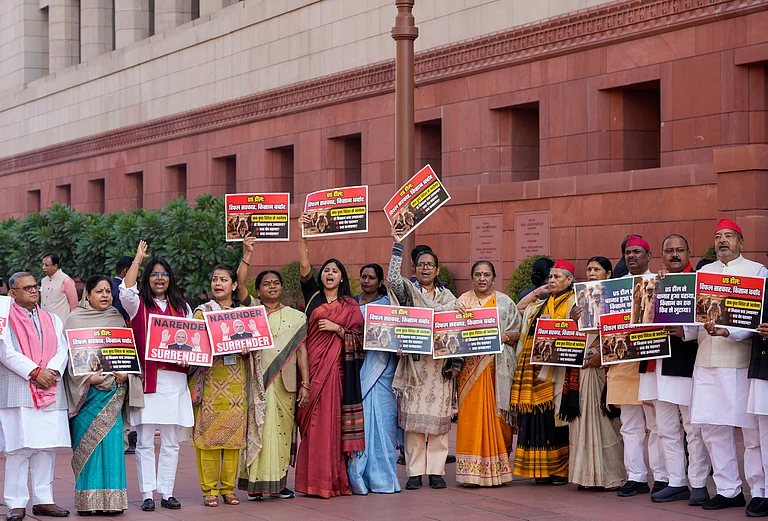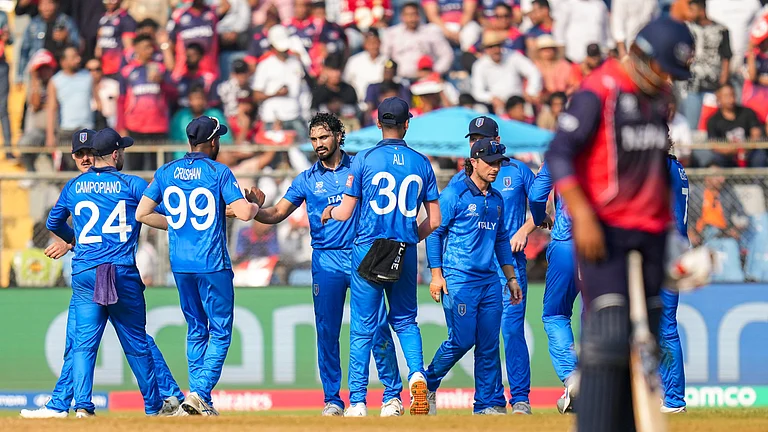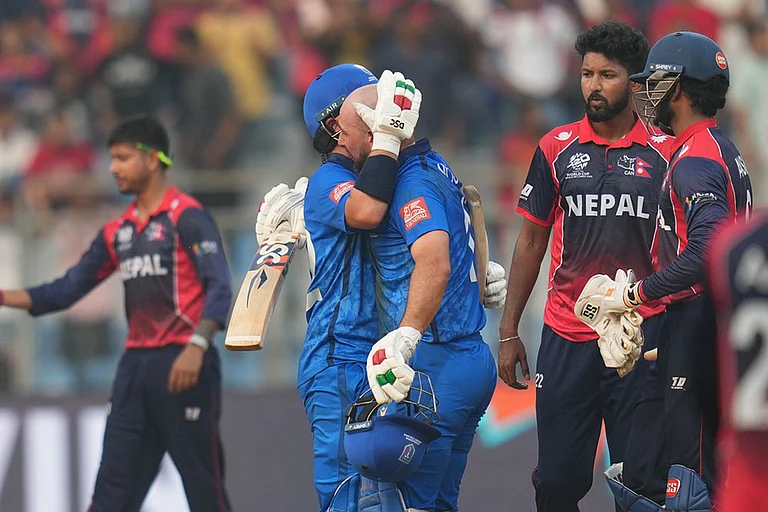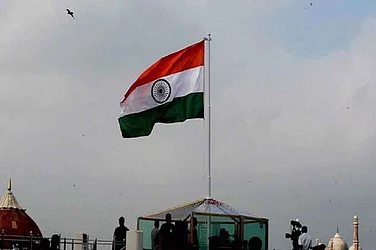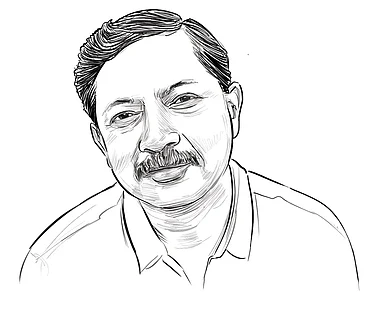Polarisation and political belligerence do not work in South India, which have reaped the Bharatiya Janata Party (BJP) rich dividends up North, according to the Telangana BJP Chief Spokesperson K Krishna Sagar Rao.
Rao added that the BJP may have to re-engineer its North India-centric political primer if the party is keen on making a dent in electoral politics in South India.
The party got lucky in Karnataka to have a caste- and mass-based leader like former Chief Minister BS Yediyurappa in its ranks, but the party has been unable to unearth enough credible young leaders from the Southern states to gain relevance in the Dravidian heartland, according to Rao.
Speaking to Outlook ahead of the upcoming assembly polls in two Southern states, Telangana and Karnataka, Rao also said that the BJP may need to shed its core political strategy of polarisation, which has reaped dividend in the Hindi heartland, and go back to the original ideology propagated by Syama Prasad Mookerjee and Deen Dayal Upadhyay, the founding fathers of the Sangh Parivar’s political shaft, the Jana Sangh and later the BJP.
“If I were given an assignment of converting South for us, I would first pick up the earlier ideology of the party, which is grand, which does not come across as divisive. I won’t say divisive, but I would say polarising, with the kind of emotional fervour that can work in other parts of the country,” Rao said.
Politics in the Southern states, said Rao, leant more towards the subtle, with little space for overt goading.
The articulation of the party’s ideology in the South needs to be done differently than in the North, said Rao, harking back to the leadership of Mookerjee and Upadhyay, both Rashtriya Swayamsevak Sangh (RSS) leaders. While Mookerjee founded the Bharatiya Jana Sangh in 1951, Upadhyay was one of its principal ideologues.
“Mookerjee or Upadhyay were patriots. Mookerjee was in Nehru’s cabinet, before he stepped out. He died for the nation. He went into Kashmir to challenge the state’s special status. He died. He was not working for Hinduism. He was working for the country — nationalism. Then came Upadhyay, who talked about integral humanism,” Rao said.

Rao said that going back to the party’s roots and transplanting them in the Southern political arena could reap success for the BJP in the region, if articulated correctly.
“Get people who are educated, get people who are articulate, get people who can convince, persuade, not push, not nudge, not those kind of leaders. Convince, persuade, explain and show the difference, talk about developmental template, talk about the universality of our ideology. That is required in the South,” Rao said.
Rao further said that while Indians in general would like to believe that the country is uniform and homogenous, in reality it is not, adding that the South is made of a different mettle as compared to the northern parts of the country. And there are reasons for it, including historic influences brought in by British and Islamic rule.
“North had more of an Islamic invasion and the British centralised the region from Delhi. But the British here (in the South) allowed provinces to function by themselves mostly. Especially Telangana as you know, which has inroads into Maharashtra and Karnataka. There has been a lot of British influence here, which led to education being made our top priority. That creates information hurdles for a party from North India to create the same fervour like it creates there,” said Rao.
According to Rao, in the state of Karnataka, which the BJP has often referred to as its gateway to the Southern political pasture, the party “got lucky” because it found in its former chief minister BS Yediyurappa, a Lingayat mass leader of the right caste pedigree, a rare feat for the party in South India.
“Mind you, Yediyurappa was never an aggressive ideology leader…He was very soft spoken, deeply rooted in his geography and in caste. He was a dominant force in the majority caste. That worked. But when you start using that aggressive ideology — which is working in the north, it will not work again in Karnataka,” Rao said.
Speaking about the BJP’s prospects in Telangana in the upcoming assembly polls, Rao said that while the BJP was aiming at winning 70 seats in a 119-member state assembly, the Congress was still not down and out in the Southern state.
“Mission 70 is the plan given by Modi and Amit Shah ji. We have to see what happens. When you project something, you are trying to fight to reach that number. If you do not reach it, there is hardly anything you can do about it. But we are not aiming low, we are aiming high. We are aiming for full power — simple majority. So we have only three parties here. We are looking to get 35 to 36 per cent. (Currently) We have about 13 per cent. We need to climb higher,” Rao said.
He added, “The magic number is 61 to 119 assembly seats. Out of 61 magic seats, over 50 seats are urban. Almost 45 per cent seats in Telangana are urban or semi-urban. By BJP’s performance or strike rate…if we target just urban or semi urban seats we can win. But we are not doing that. So there is a lack of understanding in the strategy being drawn by people who are in leadership positions.”
The BJP currently has three MLAs and the Congress, which had 18 MLAs, has been left with just six, after 12 party MLAs split the party in 2019 to join the Bharat Rashtra Samithi (BRS), which was then the Telangana Rashtra Samithi (TRS).
Rao also said that the Congress may be down in Telangana, but the party was not down and out, adding that the BRS was trying to project the BJP as its main opposition, as a part of its game of perception.
“TRS is playing the politics of perception that they are worried about us. They are not. They want to finish off Congress because they fear that the Congress can rise anytime…To establish that, he (K Chandrashekar Rao) is more worried about the Congress, he ate more than half of them by getting them into his fold. Getting them to jump ship…Why would he do that when he has 91 seats? Why would he want more MLAs? He wants to keep them (Congress) in limbo, neither completely finish them nor let them outlive,” he said.







